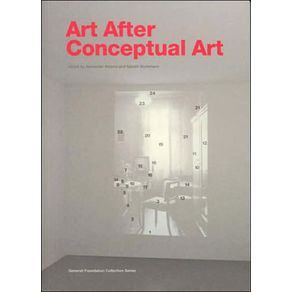Well-known art historians from Europe and the Americas discuss the influence of conceptualism on different notions of critique - identity politics, biopolitics, and globalization. The legacies of conceptualism include the several different notions of critique it engendered. This collection of essays by art historians from Europe and the Americas considers the reception of conceptual art as seen in the sometimes contentious, sometimes contradictory, and sometimes affirmative modes of critique itinspired. The essays pursue three lines of investigation into the reception of conceptual art over the past three decades: forms of identity politics, including not only class, gender, race, and sexuality but also North/South and East/West dynamics;discourses that contextualize conceptual art practices in terms of Michel Foucault's and Giorgio Agamben's ideas of biopolitics; and issues of "global conceptualism," including artistic inclusion and exclusion and conceptualism's relation to globalization. Topics discussed include Central Eastern European postconceptualism; the notion of labor in the art practices of Bernadette Corporation, Mathias Poledna, and others; the mutual influence of the "Pictures" generation of postconceptualists in theUnited States and "Second Order" painters in Germany; feminism in the work of Judy Chicago, Mary Kelly, Martha Rosler, and others in the 1970s and 1980s; and queer politics within postconceptual practices, including the "kitsch factor" and anti-intellectualism sometimes found in works by such artists as Nayland Blake and Ray Johnson. With conceptualism's legacy of critique as their focus, these essays present the multivalent artistic practice of conceptualism in all of its complexity.



